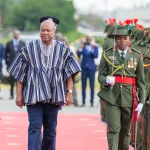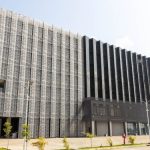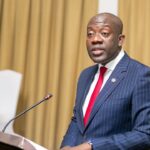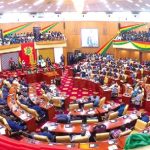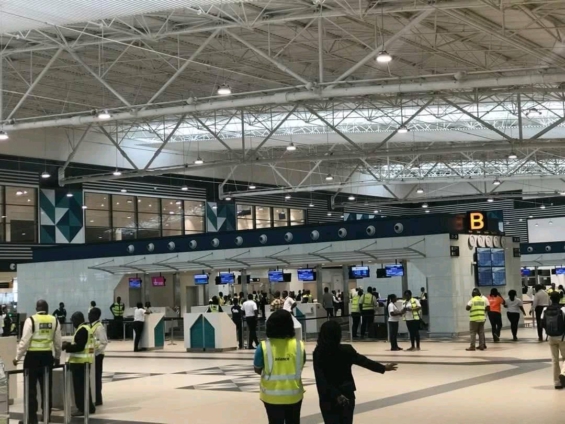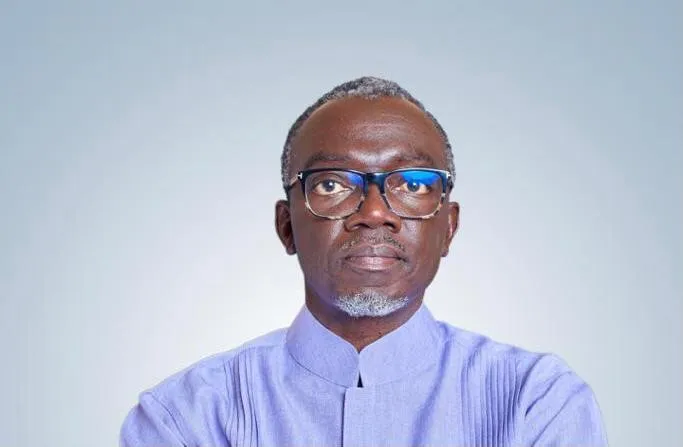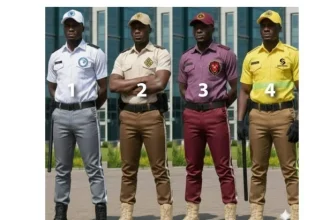A democracy is heavily dependent upon its police to maintain the degree of order that makes a free society possible.
It looks to its police to facilitate those aspects vital to a democratic way of life: to prevent people from preying on one another, to provide a sense of security to resolve conflicts and to protect free elections, freedom of assembly and freedom of movement.
The history of policing in Ghana dates back in the colonial days, the police service and its chiefs stayed out of any overt involvement in politics and played a more technocratic role.
Today’s policing approaches require an active involvement in the political life of the community. In a similar vein, in today’s policing, many service chiefs and their subordinates have found themselves carefully commenting on political issues that impact the police in the community.
The current Inspector General of Police (IGP) James Oppong Boanuh and likewise, some of the regional and district police commanders faced a fiercely tenure fight for their position due to the heavy regime political influence. Though many have called for the resignation of the Inspector General of Police at some point due to serious police infractions and misconduct of some high-level political leaders, and the decaying nature of the security system in Ghana, he still occupies his seat due to his strong ties with a very diverse set of community leaders (politically).
Police Service Chiefs need to have strong political skills that enable them to integrate their mission with the overall goals of ensuring efficient and effective policing in the country.
One of the most critical ingredients of the police chief’s role as a political manager is the ability to develop and maintain strategic relationships, partnerships, and alliances within the political system in order to function.
This largely affects the quality of policing and security service in Ghana.
It breeds inequality in the security provision to the citizenry just as Ghanaians witnessed in the just ended 2020 General Elections where regime security tactics were at play importantly for election gains but not with the purpose of providing a consultative security service delivery to the people with some form of ethnocentric attachment as complained by a section of the Ghanaian populace.
The posture of the security agencies in Ghana over the last five (5) years clearly demonstrates the necessity of developing these partnerships.
A careful analysis of the many reforms established in the security services are done tied to the relationship with the political community to their tenure, but not fundamentally creating a new, productive style of policing in the country as a top priority.
Today, community policing, demanded in a democratic practice has been politically abuse making such a system a tool for political gains where anybody can join and become exploitative of the other person (job for the boys).
Political Pressures
The impact of the external political world on the work and tenure of a police service chiefs is so powerful that it tends to blind and affect standards at all levels most importantly affecting recruitment today. The majority of police chiefs in the Ghana Police Service remain in their positions for an average of only 2 to 4 years.
Those who are successful, usually have managed to maintain a fine balance between their vision of policing and the demands of the politicians who put them in their jobs.
Service commanders have faced demands by MMDCEs to limit their community relationship–building activities in favor of stricter enforcement policies that have alienated portions of the community.
Service commanders have also faced the challenge of their inability to appoint qualified candidates, as politicians have interfered with the chief’s staff selection process.
The police leader’s role includes managing the strategies of law enforcement within the larger context of the politics of law enforcement. Recognizing this fine line seems to be a fundamental act of enlightenment, and how one performs the balancing act is the critical deciding factor in the success or failure of the Ghana Police Service (Police commander).
Police chiefs struggle to balance their oversight roles within the police organization with monitoring from other political and community actors.
Security experts like Dr. Vladimir Antwi Danso and Dr. Festus Aubyn have suggested that political leaders need to define the role of the police service chiefs as “nonpolitical.” In this case, the police chief can operate as a managerial leader who has received support from the people. But because the service chief is appointed by the government of the day, any attempts to operate outside of the political boundaries that might confront the political leader is a disaster.
But how prudent can service chiefs demonstrate their own clear commitment to law enforcement while mobilizing political support for their management of a first priority security agency.
Again, it goes back to the chief’s vision, which describes the ‘police service’ that the police chief has made a commitment to deliver to the people of the country.
Challenges
As police chiefs have struggled to establish their visions, they have faced numerous internal and external challenges to their management of police officers as well as their core mandate of protecting lives and properties. The high rates of crime in the country over the last five years is a significant indication of how enormous the challenges are today. It stems from the retooling, service condition, among others.
However, civilian structures for review of police conduct grew out of the need to challenge internal review processes as well as to provide greater police accountability and legitimacy to the country. Though police chiefs have used various measures to monitor the department’s efforts to reduce crime, there are limited tools available to measure individual officer street performance.
In the absence of these officer measures and internal feedback processes to discuss problematic officer performance, external oversight boards have been established, example, Police Intelligence & Professional Standard Bureau (PIPS). Applying external performance measurements to departmental goals further complicates police leaders’ attempts to manage their departments and carry out their vision.
In the 1950s down to the 1970s, the key indicator of police leadership was the elimination of police corruption and the elimination of political involvement of police in external matters, such as elections or specific illegal business ventures.
Managerial efficiency and commitment to technocratic goals were the primary measures of success, but can the same be said of today?
Whereas the value of participatory leadership is widely acknowledged, major political forces can and do present challenges. Ghana within the last five years has seen a total leadership failure in a regime that apply realist ideological policing as far as democratic elections and pandemic management are concern.
Many Ghanaians today, live in fear, and communities such as Kasoa have become a safe haven and breeding ground for community terrorism in Ghana where opulence display of criminality is the order of the day.
Yet the police are placed in an anomalous position. They are vested with a great deal of authority under a system of government in which authority is sharply curtailed. The specific form of their authority – to arrest, to search, to detain, to use force – is awesome to the degree to which it can be disruptive of freedom, invasive of privacy, and sudden and direct in its impact upon the individual. This awesome authority, through necessity, is delegated to individuals at the lowest levels of the bureaucracy.
However, the dual point of departure therefore is that democratic policing in itself may be a paradox, and that democracy and restrictions walk hand in hand, the more democratic a society, the more restrictions are placed upon its police, and largely influenced by politicians.
About the Author
Adu-Twum Sadiq, DDiv, MA, BA, CTh, Cprm, Cfip.
(Security Analyst/Broadcast Journalist)
Director of Education and Training
United Nations Youth Association Ghana (UNYA-GH).



